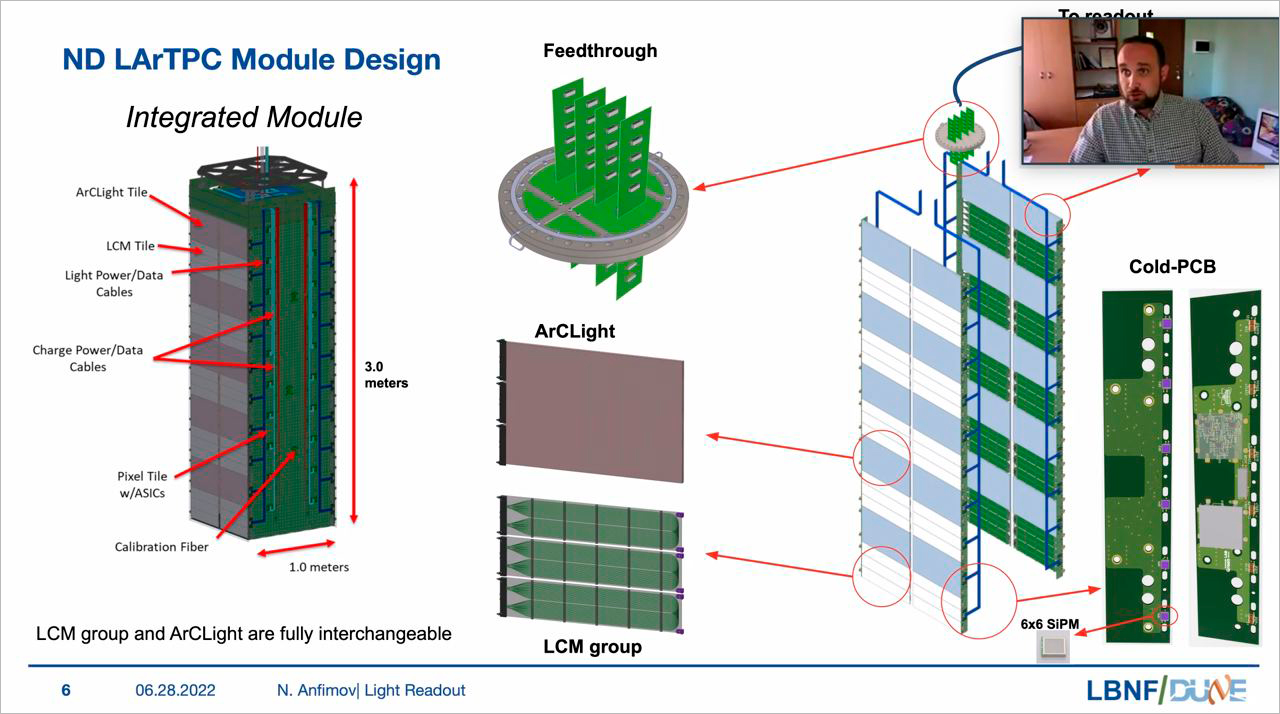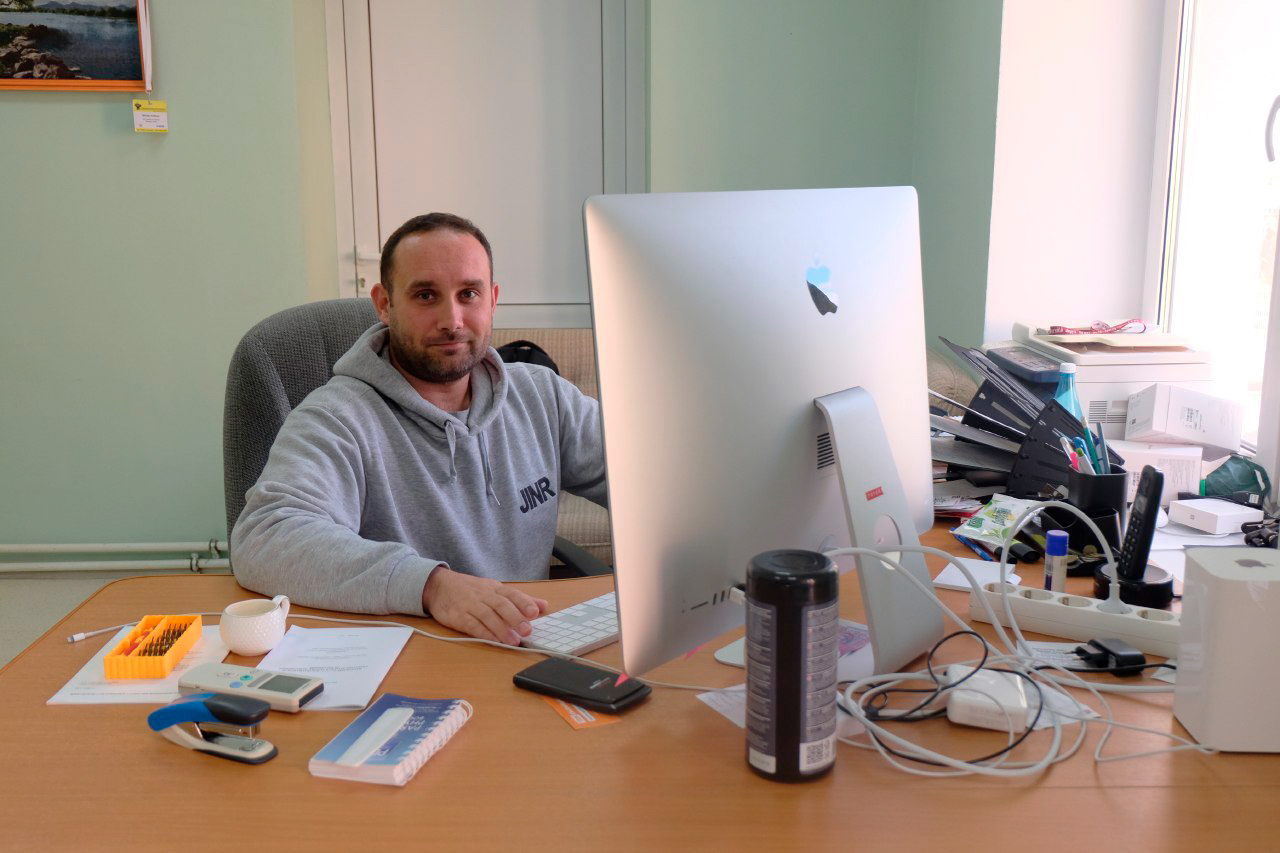Important milestone in preparation of DUNE near detector passed
News, 29 June 2022
On Wednesday, 29 June, a preliminary review, the so-called Preliminary Design Review (PDR), of the project of the liquid argon system of the near detector ND-Lar DUNE took place. This is the stage of official approval of the technical framework of the project, as well as quality control of all subsystems. One of them was a light readout system. Employees of the Dzhelepov Laboratory of Nuclear Problems JINR were responsible for the development of it. Head of the Sector of Experimental Methodology of the DLNP Experimental Department of Particle Physics (EDPP) of DLNP JINR Nikolay Anfimov has commented on the work carried out for the experiment. He is responsible for the light readout system of the detector ND-Lar DUNE.
The preparation for the PDR stage has lasted for two years. It included approval of the detector concept in 2020. In 2021-2022, it included readiness verification of systems within the ND-LAr consortium and coordination of work costs. “PDR is an essential stage in preparation of any experiment,” Nikolay Anfimov noted. “At this step, a technical framework of a project is officially approved for the first time.” As for ND-LAr, reviewers highly appreciated the quality of all subsystems, including the light readout system, for the preparation of which the Joint Institute was responsible.
 From the report by Nikolay Anfimov (Zoom) at the Preliminary Design Review
From the report by Nikolay Anfimov (Zoom) at the Preliminary Design Review
The next step, the final approval, or Final Design Review (FDR), for the whole ND-LAr detector is scheduled in two years. Meantime, a full-scale complex verification of all systems will be required. To date, specialists are preparing to test a downsized version of modules at Fermilab. In addition, Alexander Selyunin, an employee of the Sector of Experimental Methodology of EDPP of DLNP JINR, together with colleagues from other institutes have prepared JINR electronics for work. It was reported on earlier.
 Livio Calivers (Bern) and Alexander Selyunin (Dubna) in FNAL
Livio Calivers (Bern) and Alexander Selyunin (Dubna) in FNAL
The general requirements for placing equipment at the beam are very serious at FNAL. It is required to document literally everything, right down to every bolt and fuse. This has already been done to the necessary extent for the system in the EDMS CERN service as well. It included CAD models of detectors, Gerber files, lists of components, testing procedures, possible risks, costs and purchase orders, detector modeling, and test results.
 Alexander Selyunin is engaged in preparation of electronics at FNAL
Alexander Selyunin is engaged in preparation of electronics at FNAL
Together with JINR specialists, it is planned to completely assemble the system from 4 modules (2×2) at the University of Bern. Thereafter, the system will be sent to FNAL for tests. Thus, in 2023, the R&D stage will be completed. It is provided by the NOvA/DUNE project approved at JINR. During the next seven years, JINR will be able to implement its well-prepared participation in international megascience experiment DUNE.
The international Deep Underground Neutrino Experiment (DUNE) is being carried out at Fermi National Accelerator Laboratory (Fermilab, USA). The DUNE experiment aims at studying the parameters of neutrinos in oscillatory processes. To do this, a high-intensity neutrino beam will pass through the Earth’s crust and be registered by two detectors, the near one at a distance of 0,5 km from the beam and the far one at a distance of 1,300 km. In the DUNE collaboration, JINR participates in the creation of the Near Detector (ND).
